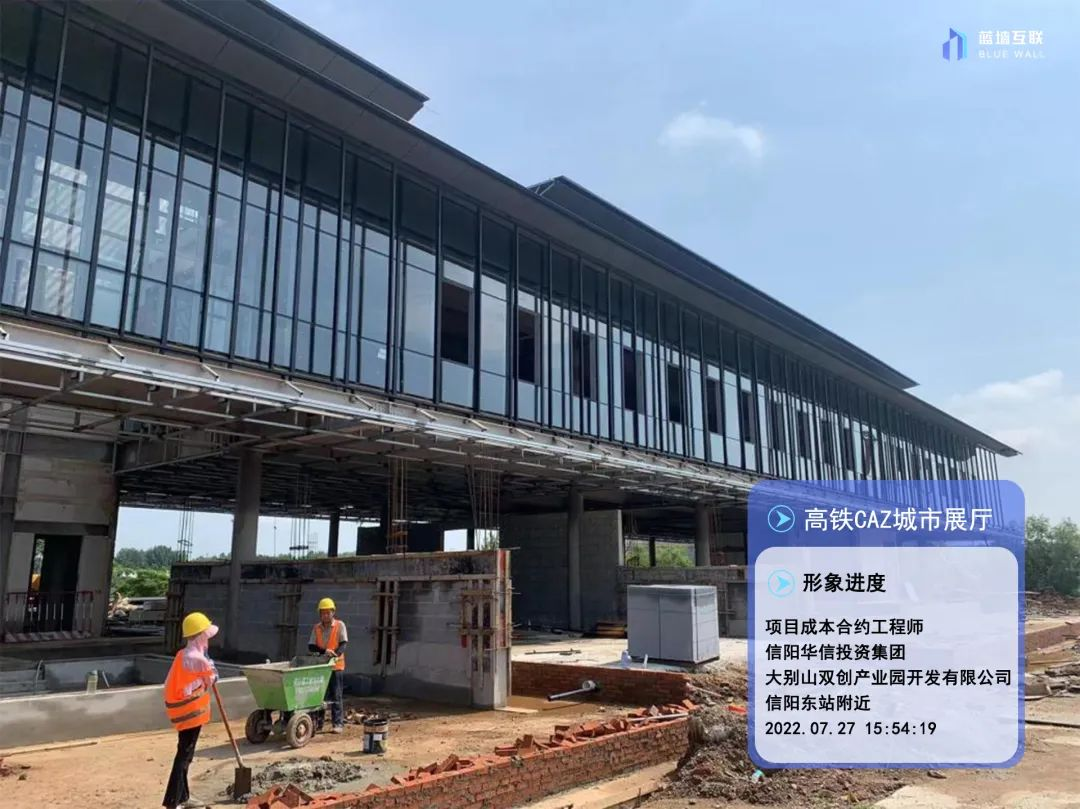Baiyun is an early member of "ZhenResidence" and an entrepreneur we continue to pay attention to. Why did he choose to return to China to devote himself to digital entrepreneurship in traditional industries? What difficulties did he encounter in the process from 0 to 1? Let us listen to the story of his establishment of BlueWall, and hope that his choices and thinking can inspire you.
——Investor of Bluewall Internet
Yin Le, Partner of ZhenFund
---
Yin Le: You gave up the executive position of an Internet unicorn and returned to China to start a business in a very traditional field. How did you make this choice at that time?
Bai Yun: When I was in college, I dropped out of school and returned to China to create an anonymous social networking site. Later, when I returned to Wharton to study for my MBA, I also chose the direction of Entrepreneurial Management (Entrepreneurial Management).
Before founding BlueWall, I was at viagogo (now called StubHub). I was the first employee of the company in Asia. I spent 5 years in a management team and was responsible for a team of more than 100 people in 13 markets. At the beginning of this year, the company filed a listing in the United States, and I have gone through the experience of "1-100".
I am very grateful to ZhenFund for opening the door to entrepreneurship for me and inviting me to participate in the ZhenResidence event to gain a deeper understanding of domestic venture capital ecology. After listening to Xu Xiaoping's sharing of "all four are empty", I really began to seriously think about the entrepreneurial path from "0-1", and later decided to drop out of school and return to China to start a business.
Digitization of traditional industries is a slow but certain business. As a pillar industry in China, real estate contributes close to 30% of China's GDP, and even a 1% increase in efficiency is a huge opportunity, worthy of our lifetime investment. I have always paid close attention to the real estate industry. When I was in the United States, I worked in a real estate fund under Morgan Stanley. After returning to China, I joined McKinsey, focusing on the growth and digital strategies of multinational companies. At that time, many real estate companies were actively exploring opportunities in this area. For example, Vanke's "Fertile Land Plan" was formulated together with McKinsey.
Yin Le : Informatization and digital intelligence innovation in a field with such a deep traditional foundation will definitely encounter a lot of resistance and challenges. Can you share a specific case of a team overcoming resistance? What do you think is the core competitiveness of BlueWall in the process of empowering real estate with technology?
Bai Yun: What we are doing is actually exploring a new business model. From early market access and sales to product development, iteration and post-service, SaaS products are very different from traditional software.We are the first company in the real estate vertical track to try this direction. We have overcome many difficulties in product and commercialization, and have blazed our own path, which actually established our core competitiveness.
Let me share a recent example. The Shanghai epidemic that started in April this year has had a great impact on all walks of life. The model of real estate software is very traditional. It has always focused on offline sales and delivery, and most companies have shut down their business during the epidemic.
We quickly adjusted our market strategy, conveyed product value through various online channels, and reached target customer groups. We are also very grateful to many old customers for sharing the real changes brought about by using Bluewall Julius.....The two months of the epidemic passed The number of customers who come online to inquire about products has reached the highest in history, online contact - communication needs - product demonstration - online signing - online implementation. Without meeting in person, we closed the deal and delivered the pilot in the month of the epidemic Two heavyweight customers, thank you very much for your recognition and trust in us.
Innovative model Bluewall Julius
In addition, BlueWall's core competitiveness is also reflected in two "powers": one is "product power" and the other is "service power".SaaS companies are essentially software service companies. Products determine how fast the company can go, and services determine how far the company can go. Of course, the essence of these two forces is talent. Our core team combines top Internet genes and years of experience in the real estate industry, and can always adhere to the first principle to think and explore, avoiding the path dependence on traditional industry experience.
Yin Le : Has the recent turmoil in the real estate industry affected BlueWall?
Bai Yun: There must be some influence. Market confidence has been damaged, the investment, construction, and sales cycles of enterprises have been lengthened, and the decision-making time for informatization investment has also become longer.
In the long run, this adjustment is beneficial to us. First of all, even in countries with the most developed urbanization such as the United States and Japan, the GDP of the real estate industry accounts for about 13%. In the future, China will still be a 10 trillion-level track, and it has already bottomed out. This real estate cycle has also brought about changes. The entire industry will be closer to the model of developed countries. Businesses such as agency construction with a clearer division of labor will rise, and industries, pensions, leasing and residential development will coexist. It will also generate a series of new information requirements.
Second, the industry has cycles, but innovation does not.Due to the huge initial investment, the traditional custom software service model in the past often takes one or two years to go online, and the implementation risk is difficult to control, which no longer matches the information demands of the current enterprises. Productization, lightweight, and high cost performance are the development directions of any innovative technology. Our team has always been in awe of the industry, and continues to work hard in these directions, striving to provide better services to industry customers.
In the end, after the industry became more rational, the need for refined management really emerged, and everyone was willing to spend time looking for a product that could really solve the problem, rather than digitizing for the sake of digitization.
Yin Le: How do you balance what to do and what not to do in SaaS products?
Baiyun: The SaaS business model takes "service" as its core.
Focusing on products, we will jointly develop and polish products with the top 100 benchmarking companies in the industry, accumulate management experience and best practices of advanced companies in the products, and export them to the entire industry. This is the first "do".
The granularity of enterprise management in the middle is not so fine, and the focus of each enterprise is also different. Therefore, it is difficult for a single-module SaaS application to meet the digital needs of all enterprises, and it is also difficult to reflect the value of SaaS services. Therefore, we pay special attention to the integrity of the product, and chose a one-stop shop route, positioning the SaaS product covering the entire life cycle of real estate from the very beginning. This means full-featured, but also a huge challenge - complex. The business is complex, the user system is complex, and the version update is complex. For the same position in the same department, the content that needs to be presented may be different for different companies.
We will have a professional industry + product team to evaluate the needs of customers, and often listen to the opinions of external CIOs to carefully evaluate each product adjustment. Whether it represents the common needs of the industry, whether it will make other users have a bad experience after updating the version, these are the elements we measure "do or not".
For example, one of our customers in Zhanjiang proposed to add the "Warehouse Management" module. After many investigations and on-the-spot investigations, we judged that the customer's need to optimize the warehouse structure and realize intelligent material storage management is a common demand in the industry, so we decided to add related functional modules for free. Today, our "warehouse management" module has become a highlight of the product.
While ensuring that the version iteration does not affect the user experience, it is what we have been doing to continuously add functions that meet the needs of the industry.Therefore, for Bluewall, the "dos and don'ts" is to make users feel that the content has become richer, rather than using it more complicated.
Yin Le: What is the current customer distribution of BlueWall? Will you consider going overseas in the future?
Bai Yun: Our products have been on the line for more than a year, and have served dozens of real estate, urban investment, and industrial park development customers across the country. We have established regional benchmark cases such as Gemdale Group, Xinjiang TBEA, Jiangxi Joyland, Xinyang Huaxin and Siasun Robotics. The renewal rate of the amount exceeds 100%.

The construction site uses Julius to do supervision and control in one step
Going overseas may be more a matter of following the trend. Chinese companies have been exploring opportunities to go overseas. Many overseas construction projects are undertaken by domestic companies from investment, contracting to subcontracting. This is a good opportunity for us to go overseas with our customers. Secondly, during this period of time, many Southeast Asian developers have also approached us, and the real estate development model and culture there are consistent with those in China.
Finally, Bluewall, as a start-up SaaS company, is born global, and we have reserved international functional modules at the product level. We have digital products with rich successful cases and experience in trading in China. As the Chinese model is exported overseas, we have a very broad market worldwide.
Yin Le: Can you share the best example of BlueWall helping clients improve the efficiency of the real estate industry?
Bai Yun: Goaltry is engaged in the development and operation of industrial parks across the country. There are more than a dozen projects, large and small, involving multi-party collaboration between different business departments such as planning, engineering, recruitment and cost. They urgently need a set of overall digital solutions, which must not only ensure the orderly progress of the project, but also ensure the continuity between engineering and business departments.

The customer of Bluewall is located in the new factory building project in Fengcheng Town, Fengxian District, Shanghai
Goaltry is relatively advanced in digitalization, and has used 5 or 6 vertical and general-purpose software products, but none of the core demands of "lightweight, efficient coordination of modules, simple operation, and reasonable price" has always been available. business can be satisfied.
Starting from the scenarios and pain points encountered by customers in their daily work, combined with the relatively streamlined management model and light workflow working method of Goaltry, we quickly built a set of digital project management system that is lightweight, professionally matched and efficiently coordinated by various departments . After the system went live, our customer success team has been in close communication with Goaltry's team to optimize and iterate the product based on their actual usage. According to the calculations of several industrial real estate customers, after the application of system management, the efficiency of the management team has doubled, and the same team can manage twice the original project volume, which has actually brought efficiency improvements to customers.
Yin Le: BlueWall is your first start-up. What is the biggest challenge you encountered during this process? Do you have any experience you can share with us?
Bai Yun: For me, I clearly know my shortcomings and deficiencies, so attracting talents with the same values and filling my shortcomings is the biggest challenge. On the one hand, we have very high standards for talents, especially the core team, which must meet the three conditions of excellent academic qualifications, work experience in large companies, and entrepreneurial experience. And because we are a brand-new business model, many past experiences and methods of doing things are not necessarily suitable, and the ability to think independently is relatively high. On the other hand, talents are also selecting companies, especially in the recent economic downturn. Everyone is looking for stability. It is indeed difficult for start-ups to attract high-potential talents with excellent backgrounds.
My personal experience is to find a leader in the early stage, and when the core team is established, it will be able to attract talents to the next level.Founders need to spend more energy on recruitment. For example, I use a relatively simple method. I believe that great efforts can produce miracles. I have communicated with more than 30,000 candidates on the Boss alone. This is very different from recruiting in large companies.
Yin Le: Can you share three qualities that you think are the most important as an entrepreneur?
Baiyun: The ability to think independently, extremely eager to succeed and willing to pay a very high price.
